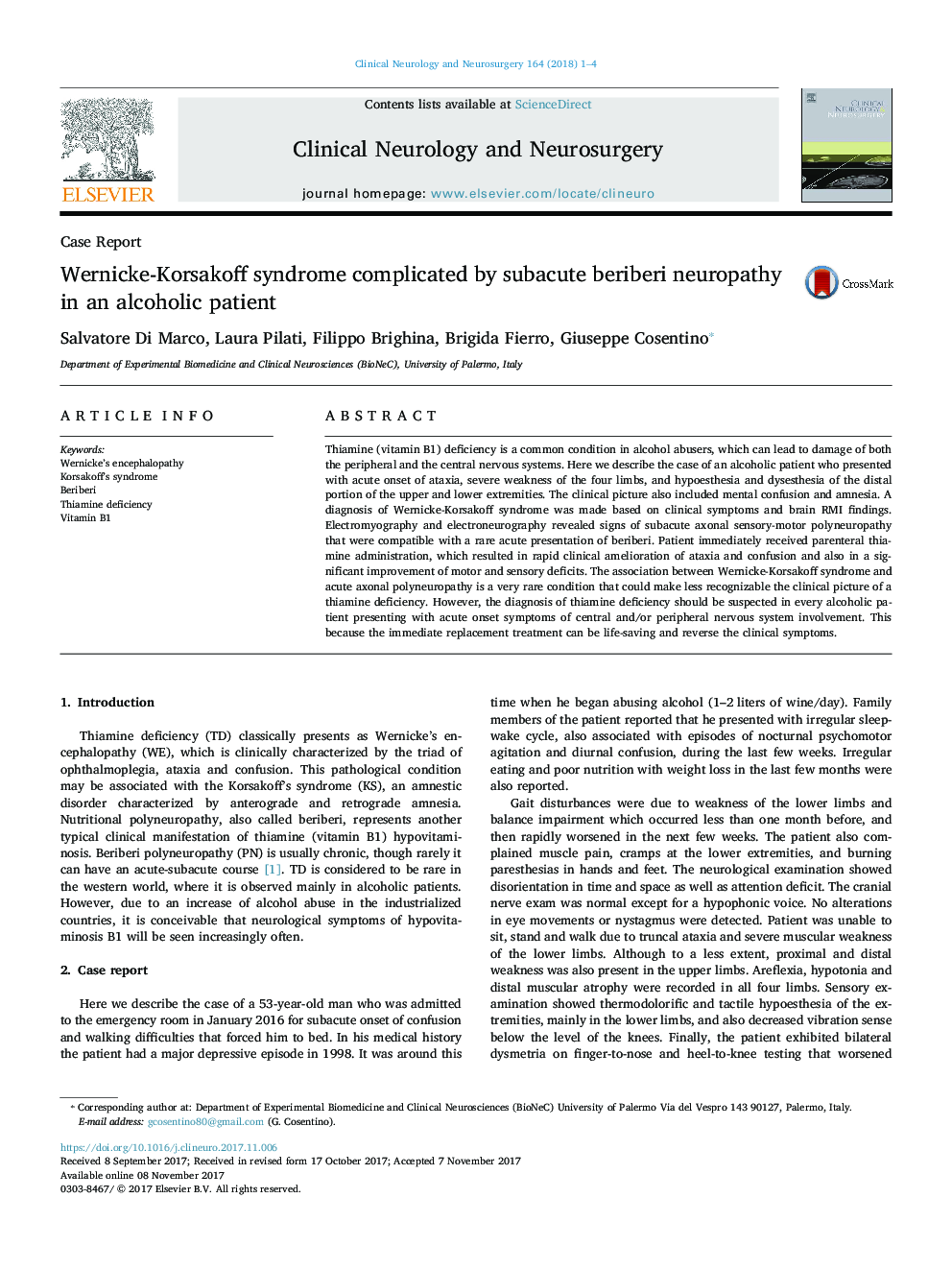| Article ID | Journal | Published Year | Pages | File Type |
|---|---|---|---|---|
| 8682023 | Clinical Neurology and Neurosurgery | 2018 | 4 Pages |
Abstract
Thiamine (vitamin B1) deficiency is a common condition in alcohol abusers, which can lead to damage of both the peripheral and the central nervous systems. Here we describe the case of an alcoholic patient who presented with acute onset of ataxia, severe weakness of the four limbs, and hypoesthesia and dysesthesia of the distal portion of the upper and lower extremities. The clinical picture also included mental confusion and amnesia. A diagnosis of Wernicke-Korsakoff syndrome was made based on clinical symptoms and brain RMI findings. Electromyography and electroneurography revealed signs of subacute axonal sensory-motor polyneuropathy that were compatible with a rare acute presentation of beriberi. Patient immediately received parenteral thiamine administration, which resulted in rapid clinical amelioration of ataxia and confusion and also in a significant improvement of motor and sensory deficits. The association between Wernicke-Korsakoff syndrome and acute axonal polyneuropathy is a very rare condition that could make less recognizable the clinical picture of a thiamine deficiency. However, the diagnosis of thiamine deficiency should be suspected in every alcoholic patient presenting with acute onset symptoms of central and/or peripheral nervous system involvement. This because the immediate replacement treatment can be life-saving and reverse the clinical symptoms.
Related Topics
Life Sciences
Neuroscience
Neurology
Authors
Salvatore Di Marco, Laura Pilati, Filippo Brighina, Brigida Fierro, Giuseppe Cosentino,
